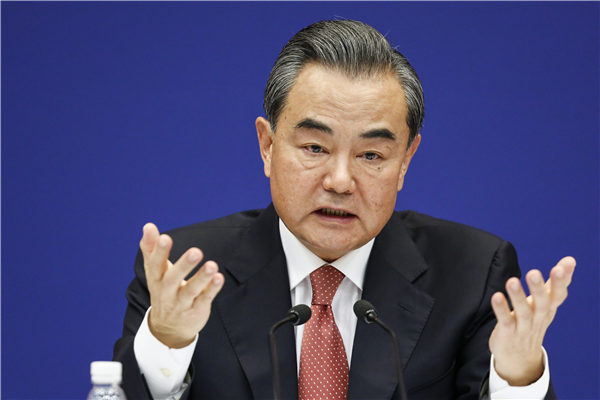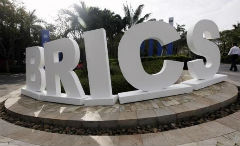BRICS summit to lift global growth
2017-08-31
China Daily
 Foreign Minister Wang Yi tells reporters on Aug 30 that BRICS members will focus on key economic areas. [Photo/China Daily]
Foreign Minister Wang Yi tells reporters on Aug 30 that BRICS members will focus on key economic areas. [Photo/China Daily]
The upcoming BRICS Summit is expected to be a force strongly propelling global economic growth and sending positive signals for open markets, both crucial at a time when the world’s economic recovery remains unsteady, Foreign Minister Wang Yi said on Aug 30.
President Xi Jinping will chair the summit to be held in Xiamen, Fujian province, from Sept 3 to Sept 5. Xi will also preside over the Dialogue of Emerging Markets and Developing Countries and attend some other events, such as the opening ceremony of the BRICS business forum, Wang said.
Speaking at a news conference, the foreign minister said that the five BRICS members-Brazil, Russia, India, China and South Africa-will focus on key areas of economic cooperation through such means as establishing a working group for e-commerce.
Leaders from five other emerging markets and developing countries-Egypt, Guinea, Mexico, Tajikistan and Thailand-will attend the summit and engage in dialogues with the BRICS members amid China’s efforts to build BRICS Plus, a wider “friends circle” of developing countries.
“BRICS is not a closed club,” Wang told reporters, adding that the BRICS Plus idea put forward by China this year has been welcomed and supported by many other developing countries.
He pointed out that not only have the BRICS members held their first athletic games and jointly produced films, the BRICS Culture Festival will be launched during the summit as a way to boost people-to-people exchanges between members.
BRICS has become a key force in promoting global economic growth, pushing the reform of global order and safeguarding international peace and stability, he said.
When asked how China and India can enhance economic cooperation given the recent tension caused by Indian troops’ now concluded intrusion into China’s Donglang area, Wang said that the two countries should “properly handle and control” the disputes in accordance with the consensus reached by the leaders of both countries.
“It’s quite natural that China and India, as two big neighboring nations, have some problems along with enhanced exchanges between them,” he said, adding that they should try to seek long-term resolutions through contacts of all types.
Wang said there is great potential for China-India cooperation. The two countries should make joint efforts to revitalize Asia and contribute to global peace, he said.
On June 18, Indian troops illegally crossed into the Sikkim sector of the China-India border and intruded into China’s Donglang area to block China’s road construction. The Foreign Ministry said on Aug 28 that India has withdrawn all its personnel and equipment to its side of the border after a 10-week intrusion.
Shen Yi, director of the Center for BRICS Studies at Fudan University, said the BRICS countries are likely to discuss detailed measures to facilitate trade and investment, which could bring win-win results.



